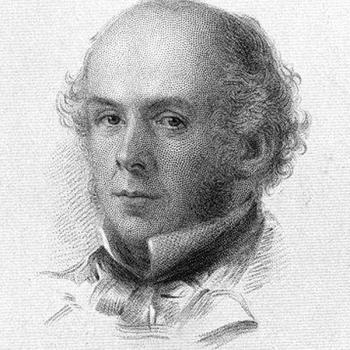This post strays a bit from the main theme of the Anxious Bench in that I am not discussing religion, particularly, but I will focus on history, and specifically the means by which history is presented to a general mass audience. After all, such popular presentations are the way in which most people learn about history. When can and should such histories omit key parts of the story? What is too toxic even to mention?
I am thinking of Ken Burns’ recent documentary series on Country Music, to which my colleague Chris Gehrz has already referred. The series covers the country tradition from the 1920s onward, and it is an absolute goldmine for anyone studying American history in that period. It is a treasure trove for a wide variety of themes – religious definitely and centrally, but also issues of gender, race, industry, urbanization, and mass media. Just invaluable stuff.
Episodes six and seven cover the years 1968 through 1983, the long seventies. This was an era when country music entered the mainstream, and indeed dominated that musical mainstream, with superstars like Dolly Parton and Loretta Lynn. Country benefited from a larger 1970s trend of rediscovering American roots and authenticity, a major concern during and after the Vietnam/Watergate years. This was intimately linked to the evangelical revival of those years, which manifested itself in Christian rock, and Christian themes in country rock music. To over-simplify, in the mid-1970s, Nashville was in an era of (frankly) self-congratulatory triumph, with superstars turning out increasingly bland pop-oriented material, of Countrypolitan, which would not be challenged until he arrival of Outlaw Country later in the decade.
All of which brings me to the utterly perfect encapsulation of that whole era, its mood, and its obsessive fascination with celebrity, which came in Robert Altman’s 1975 film Nashville. This is commonly listed as among the very greatest American films, and some critics would say, the single greatest of all time. This sprawling film covers multiple themes, but focuses on a campaign by an upstart presidential candidate in Nashville. We see the rivalries of various country superstars, offering a brilliant satirical depiction of a brittle culture of celebrity. We also see a disturbed wandering assassin, who will ultimately shoot one of the country stars, in an attempt to kill the presidential would be. The whole story reflects the 1972 assassination attempt on candidate George Wallace. The film is about celebrity and obsession, themes that have not entirely lost their relevance today.
When shots are eventually fired, there follows a near-perfect cinematic moment. One of the country stars urges the crowd, “Y’all take it easy now. This isn’t Dallas, it’s Nashville! They can’t do this to us here in Nashville! Let’s show them what we’re made of. Come on everybody, sing! Somebody, sing!” So America is collapsing (as it appeared to be in 1975)? Hey, everybody sing!
As you watch Nashville alongside the Ken Burns documentary, the resonances are overwhelming. The film’s leading characters include dueling female superstars. One is all but explicitly meant to be Loretta Lynn, the other is a blonde ambition amalgam of Tammy Wynette and Dolly Parton. Other real world characters clearly referenced throughout, and barely disguised, include Charley Pride, Roy Acuff, Porter Wagoner, and Kris Kristofferson. All those real-life characters feature centrally in the Ken Burns series, and especially in the four and a half hours or so (four and a half hours!) that address the years 1968-1983.
But here’s the thing. Unless I blinked and missed it, the Ken Burns series makes not a single reference to that film. Actually, it has strikingly little to say about other films that one might think to be very relevant to the question of how non-Country people viewed this whole saga, works like Coalminer’s Daughter and Urban Cowboy. Personally, I enjoy the hilarious portrayal of a redneck country bar in the 1980 Blues Brothers, but let that pass. Any of those omissions might be forgiven. But Nashville? Really? One of the greatest American films, portraying the very characters who are central to your whole narrative? Not mentioned at all?
How on earth do you tell the story of Nashville without Nashville?
One explanation is that Ken Burns is addressing the history of music, and is not seeing or comprehending the role of cinema. That’s a problem. But the much more basic reason is that then and since, the country music world in general, and Nashville in particular, loathed and despised Nashville, and never forgave it. They hated, hated it. Certainly the film offers a seriously critical view of Nashville, and the portraits of the various stars are deeply unflattering. The scars that Robert Altman left have not healed, even today. This is all still radioactive.
I am speculating, but I wonder if the documentary-makers raised the subject of the film with the various interview subjects, and were told simply: you so much as mention that damn film on the air, just once, and I won’t appear in the film at all! Dolly Parton for one is deeply protective of her public image, while Loretta Lynn is likewise recalling a profoundly troubled time in her life and career. Just how bad a time you would never guess from the beaming hagiography offered by Ken Burns. Something like the Burns enterprise depends totally on the star power of its interview subjects, and losing Lynn and/or Parton would have been a cataclysm. Potentially, they could also have passed the word to others not to participate.
If you have any interest in the theme of Nashville, or country music, or cinema, and you have not seen Nashville, do yourself a major favor and remedy that omission as soon as possible. It is just fundamental to the story of country.
Ken Burns’s series is terrific history in so many ways. But it leaves out some highly controversial areas, and that really limits its usefulness. Its silences are deafening.
















